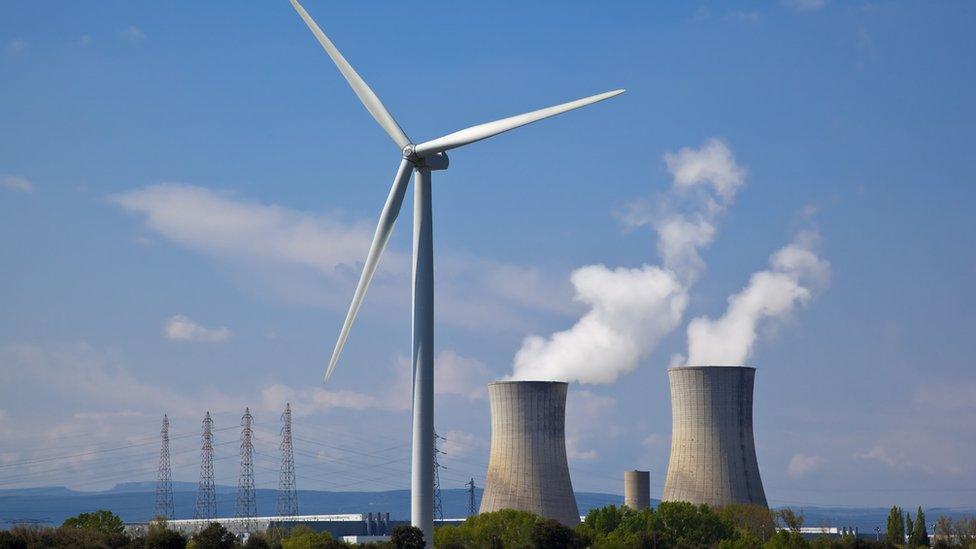Sizewell C: What is a nuclear power plant?
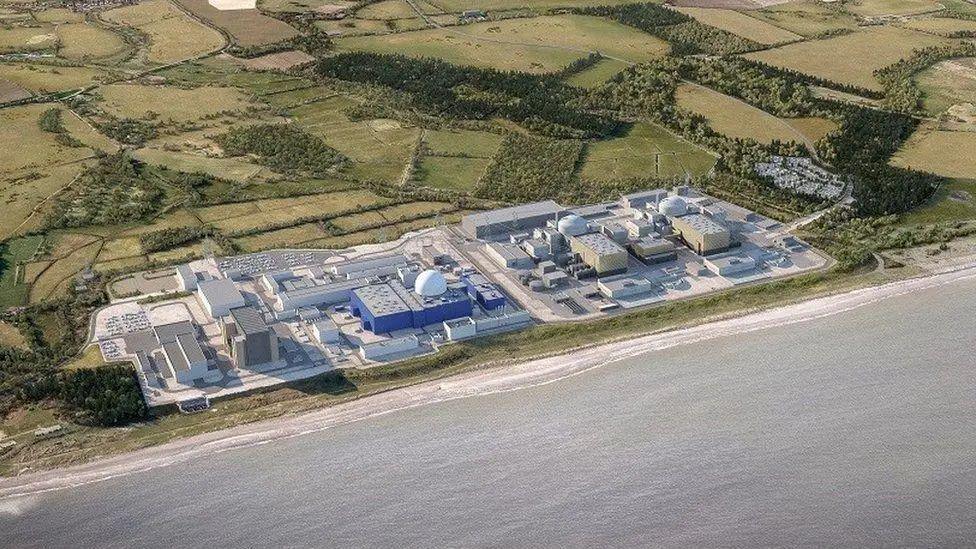
Sizewell C will take a least ten years to build
- Published
The UK government has announced it'll be investing £14.2 billion into the building of a new nuclear power plant in Suffolk.
The new plant, called Sizewell C, will take at least a decade to complete once its construction begins.
The government says it'll provide enough energy to power six million homes, create thousands of jobs and would be the "biggest nuclear building programme in a generation". They say this will have a positive impact on the UK's economy.
However, some groups aren't happy about the plans for Sizewell C to go ahead.
To find out why, read on below.
More like this
- Published7 April 2022
- Published9 May 2024
- Published4 February
What is Sizewell C?
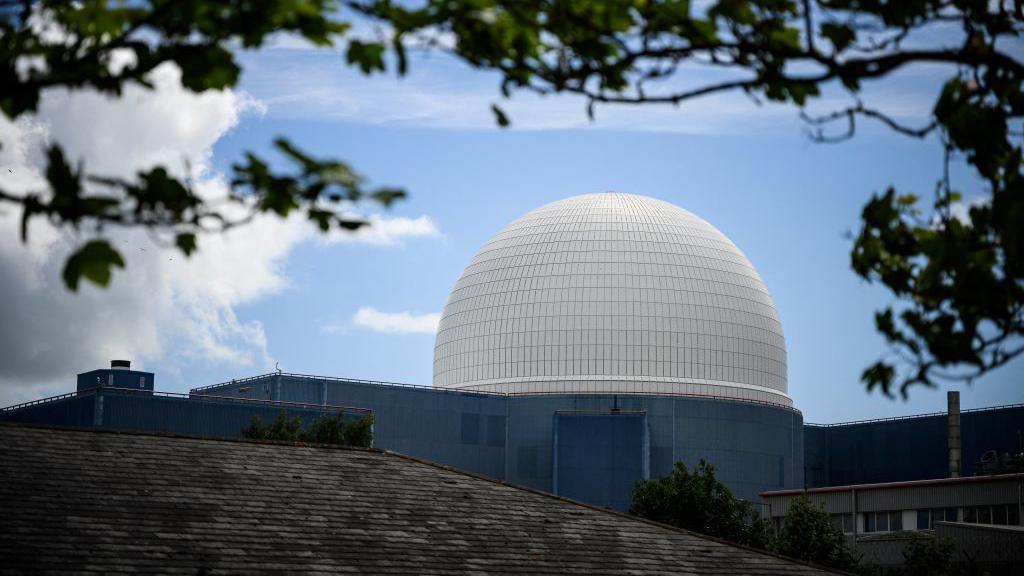
The new power station will sit right next to Sizewell B
Sizewell C is a planned new nuclear power station on the east Suffolk coastline, that energy company EDF wants to build.
It claims Sizewell C could power the equivalent of about six million homes and will generate electricity for 60 years.
The new power station will sit right next to Sizewell B which has been operating since 1995, just off Sizewell beach.
The Sizewell A site, which first opened in 1967 and is no longer operating, can also be found here.
What is nuclear energy and how does it work?
How does nuclear power work, and what does it do?
Nuclear power is produced through a process called nuclear fission.
Everything on Earth is made of atoms but they are so tiny you need a powerful microscope to see them.
Nuclear fission happens when something even tinier - a neutron - smashes into an atom causing it to split. A chain reaction then occurs as more neutrons are released.
This process makes a huge amount of heat, which is then used to turn water into steam.
This steam drives a turbine, which powers a generator, creating electricity.
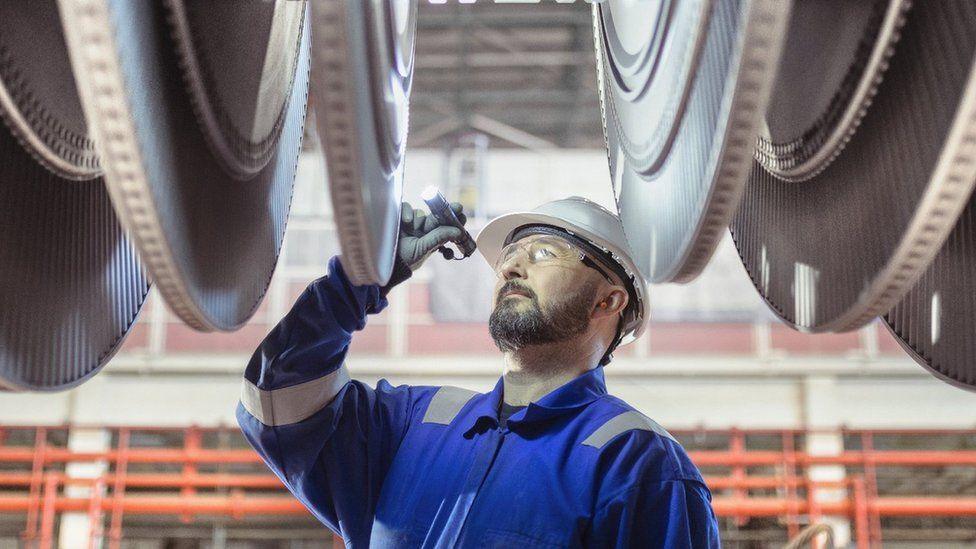
Nuclear power stations are looked after by teams of engineers
Around 20% of the UK's electricity is produced by nuclear power from power stations.
Nuclear power plants tend to be close to the sea, as they produce a lot of heat which needs lots of water to cool down.
The UK currently has five nuclear plants in operation which are home to a number of nuclear reactors. The reactors are where the nuclear fission process takes place.
However, nuclear reactors can't operate forever. They age over time and nuclear plants have to eventually be closed.
A number of reactors in the UK are scheduled to be shut down over the next few years.
What are the benefits?
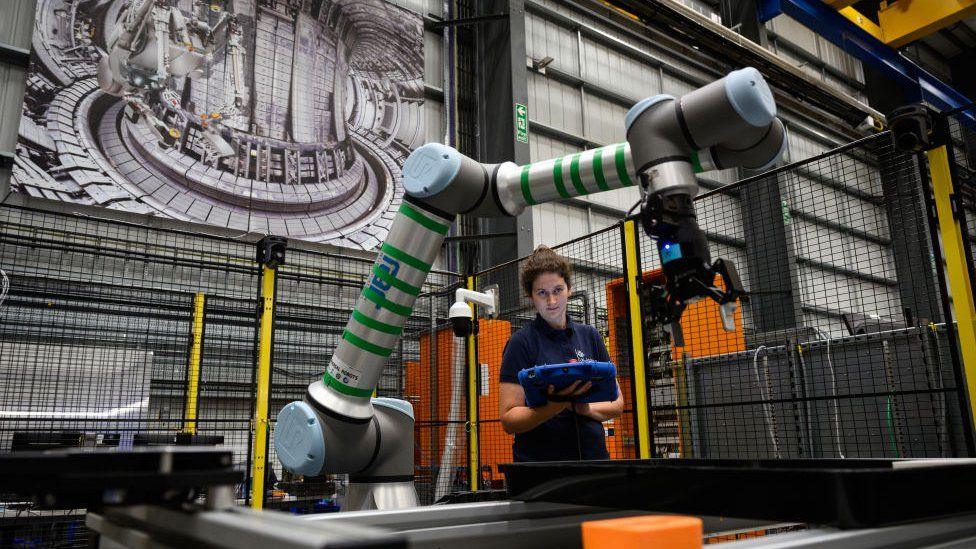
People like engineer Maddie Kearney are testing new ways to fuse atoms and produce energy
Unlike coal, oil and gas power, nuclear power does not produce carbon dioxide.
Carbon dioxide is a greenhouse gas - a chemical that traps heat in the atmosphere and heats up the Earth, contributing to global warming.
Nuclear is a reliable source of energy - which means power can be created whenever it is needed.
Although wind and solar power are renewable, they work better with stronger winds or sunnier weather.
Despite nuclear energy not being renewable, you need to use much less to produce energy.
The government says nuclear power is an important part of its plans to cut the amount of fossil fuels used in the UK by 2030.
What are the risks of nuclear power?
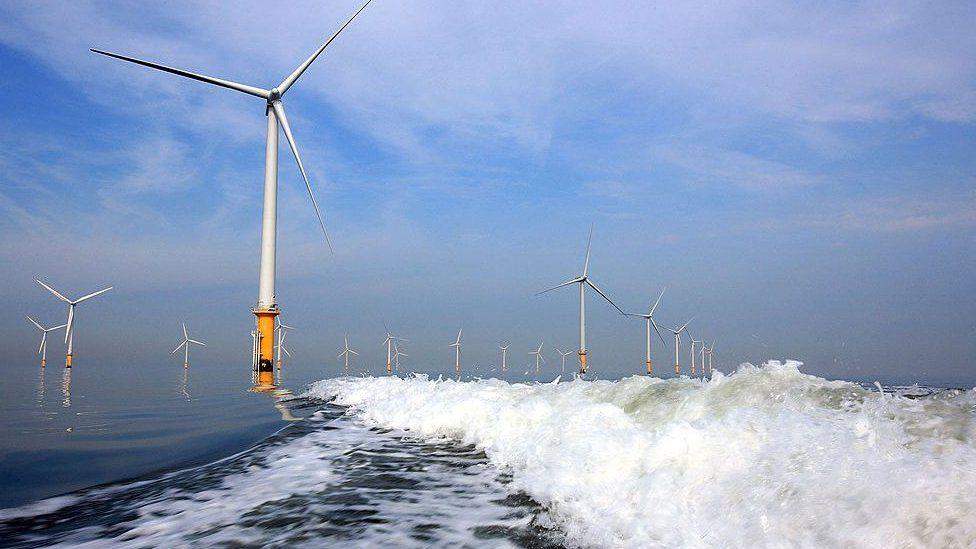
Nuclear energy is more reliable than wind power
In the UK, all power plants are regulated by the government's Office for Nuclear Regulation, which makes sure they run safely.
Modern reactors are extremely safe - the United Nations (UN) says nuclear power plants are some of the "safest and most secure" facilities in the world.
However, in the past, there have been some dangers associated with nuclear power, for example with the 1986 Chernobyl disaster.
The problem of nuclear waste
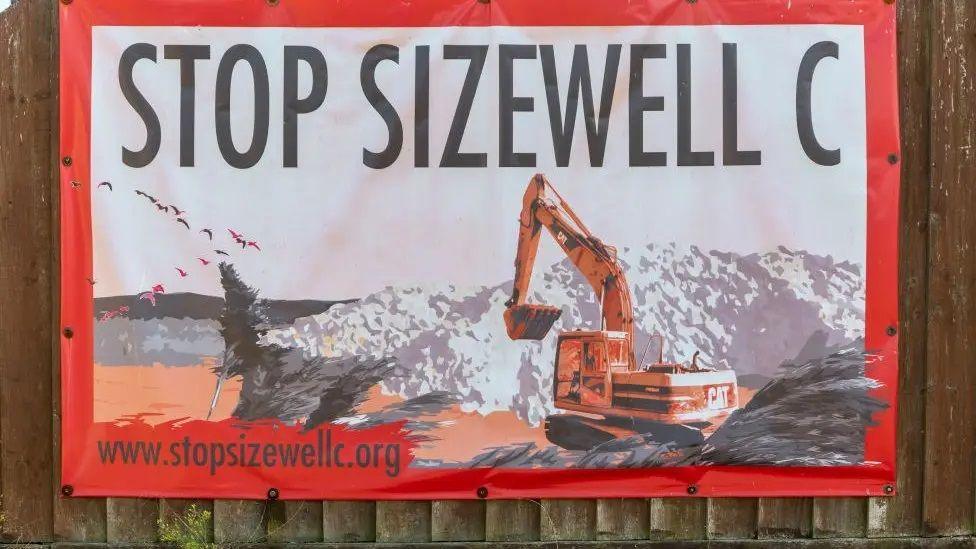
Some people aren't happy with nuclear plants being built in their area
After a nuclear reaction, power plants are left with nuclear waste - which is radioactive and can be dangerous to health if it is not stored properly.
However, the UK government says it safely stores nuclear waste around the country, and research is being done looking into finding new ways to safely get rid of waste.
One technique is called Geological Disposal - it's sometimes known as GDF.
This involves putting waste deep inside rocks, to make sure radioactive materials will not reach the surface for hundreds of thousands of years.
Are other nuclear plants being built?
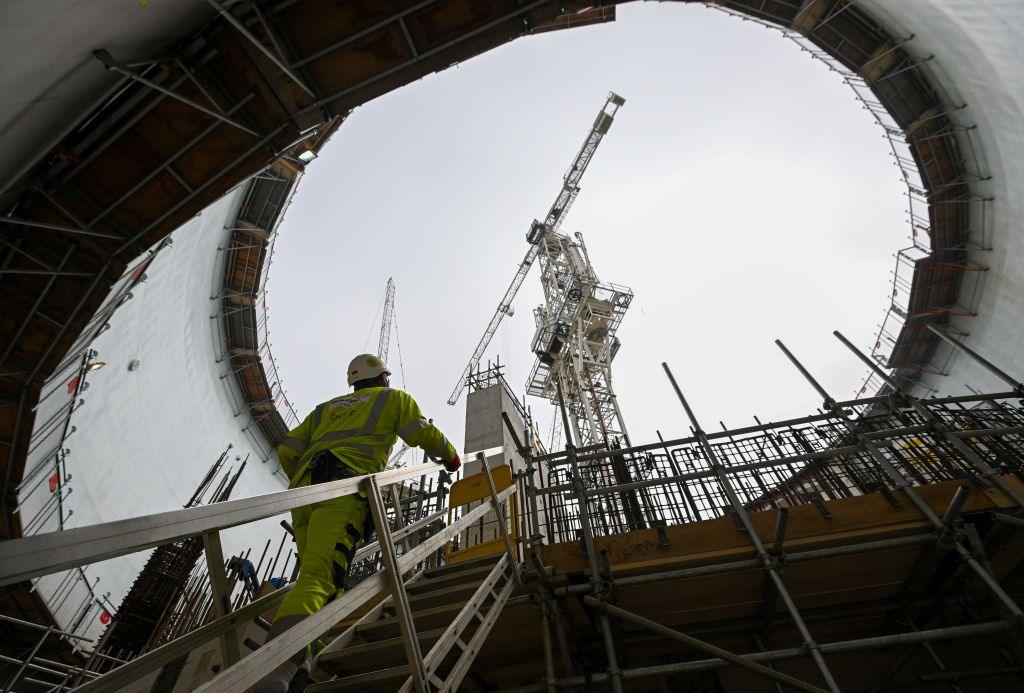
Hinkley Point C is being built in Somerset
Sizewell C isn't the only new nuclear plant being constructed.
The building of Hinkley Point C in Somerset began in 2017.
It's expected to begin operating in the early 2030s.
The plant, which was expected to open in 2027, has experienced lots of delays and has cost much more to build than originally predicted.
- Published21 December 2022
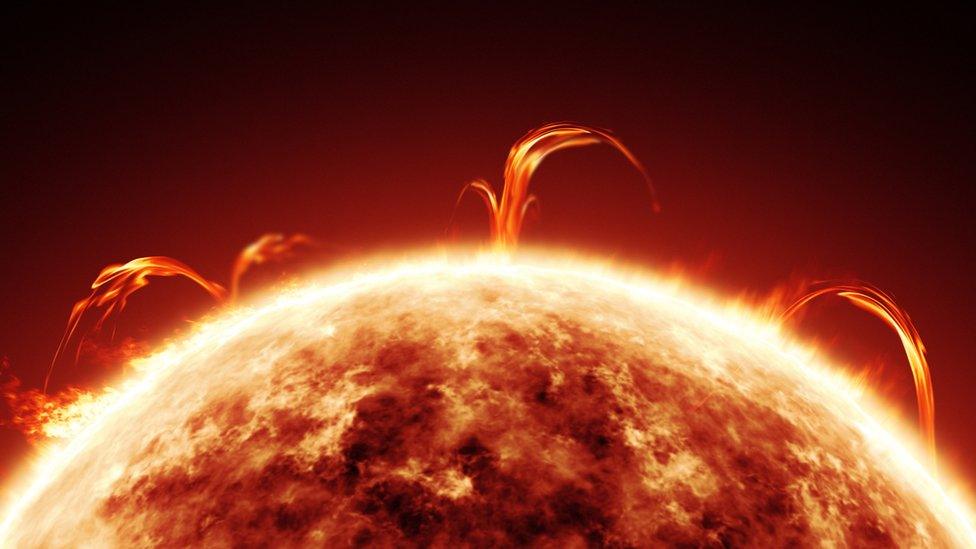
- Published15 September 2016
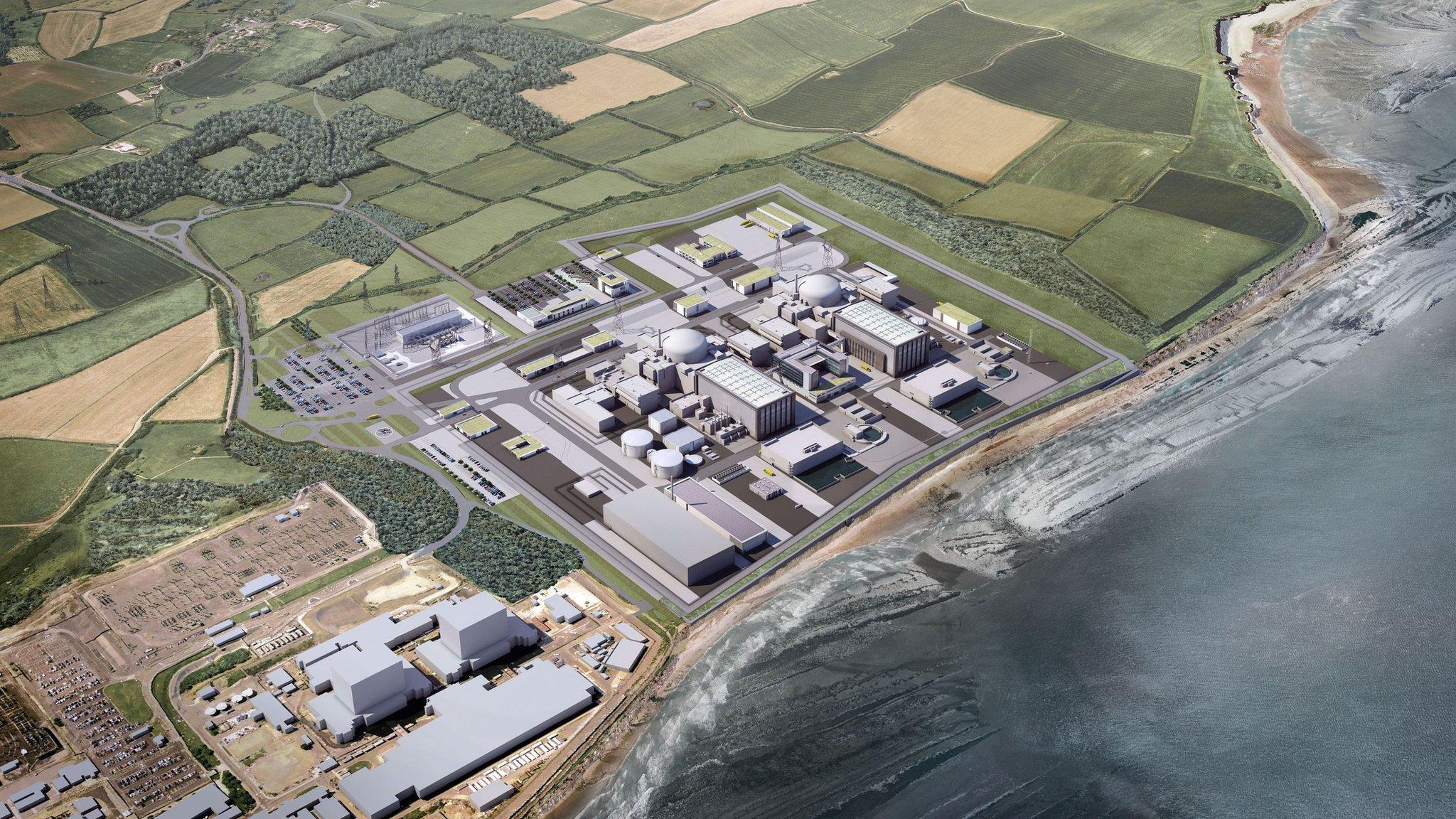
- Published7 April 2022
